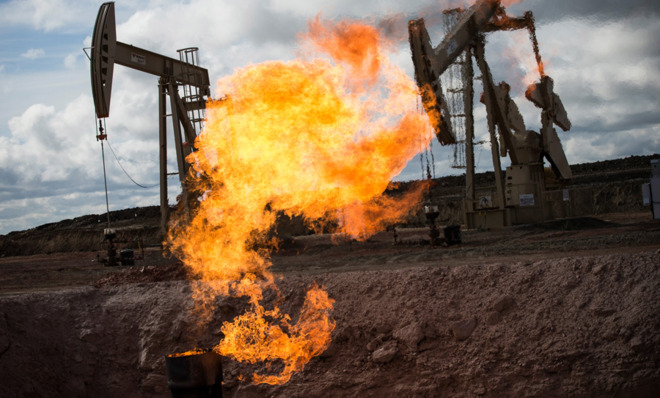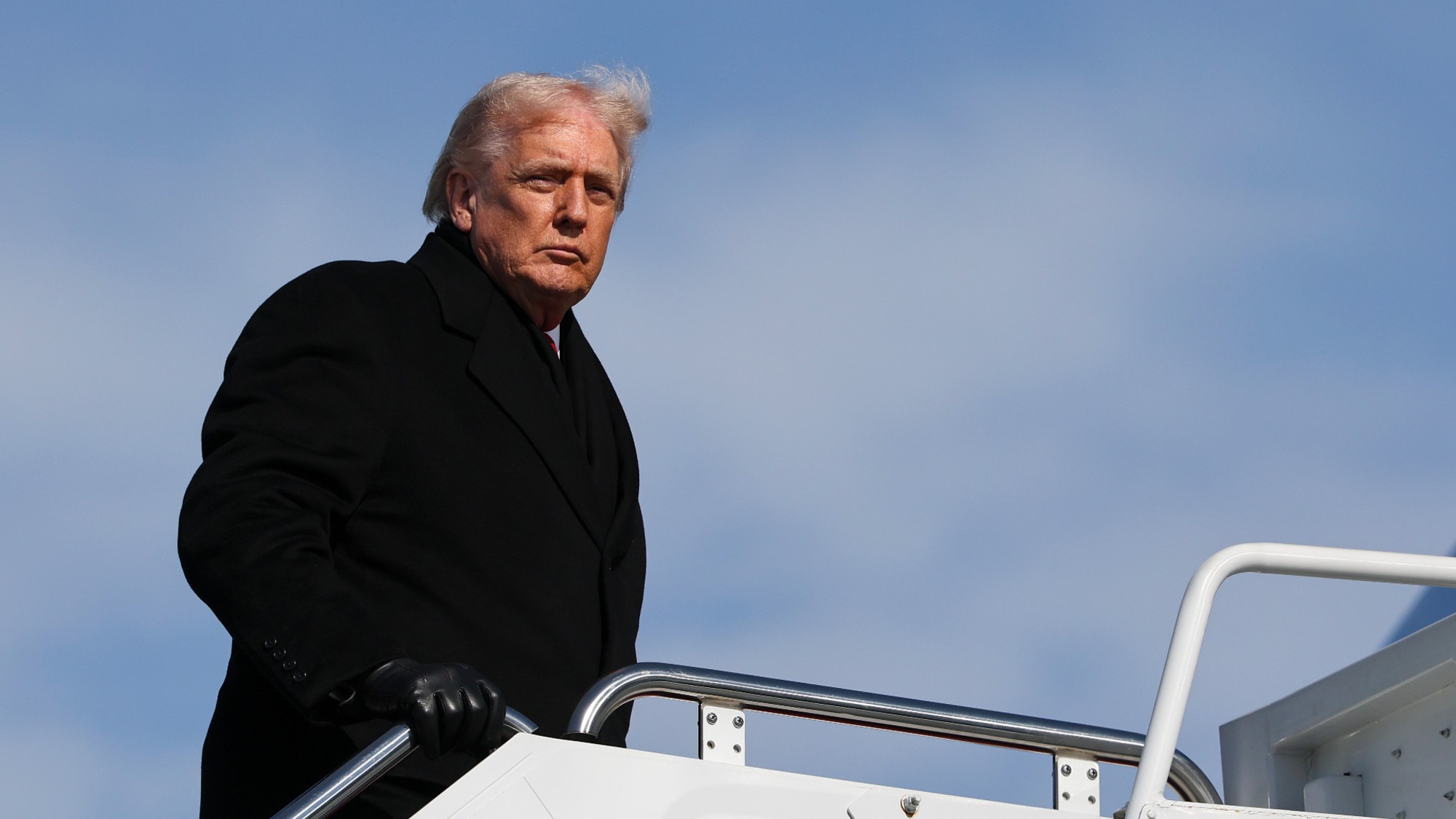America is headed for an economic golden age — and that should terrify us
Beware the "resource curse"


The economy has been underperforming for over five years now. It's easy to worry that this unsettling trend might go on forever.
Well, don't worry. Because shale gas will probably change everything.
Last year, the U.S. bested Russia to become the world's biggest exporter of natural gas, thanks largely to shale gas. President Obama celebrated the moment by saying that the United States is the "Saudi Arabia of natural gas." It later turned out that the United States is also the Saudi Arabia of...oil, with its oil production scheduled to overtake Saudi Arabia's by 2015. That's next year.
The Week
Escape your echo chamber. Get the facts behind the news, plus analysis from multiple perspectives.

Sign up for The Week's Free Newsletters
From our morning news briefing to a weekly Good News Newsletter, get the best of The Week delivered directly to your inbox.
From our morning news briefing to a weekly Good News Newsletter, get the best of The Week delivered directly to your inbox.
It's unclear just how big America's reserves of shale oil and gas are, but if the most optimistic estimates are correct (and when it comes to shale, optimists have often been proven right), America's soil holds enough economic value to completely change American society.
But not necessarily for the better.
Yes, America is on the brink of having a massive economic boom thanks to its ability to export oil and natural gas to energy-hungry countries all around the world. But here's the thing: History shows that extraordinary supplies of natural resources tend to be a curse rather than a blessing. Thinking of the United States as the next Saudi Arabia? Well...would you want to live in Saudi Arabia?
The "resource curse" is often explained in terms of a macroeconomic phenomenon knows as the "Dutch disease." The way the Dutch disease works is relatively straightforward: Because foreigners buy your oil, this bids up your currency relative to other countries of a similar income. Because your currency is higher than other similar countries, your non-oil-related industries are uncompetitive and see-sawed by the market gyrations of oil prices, and wither on the vine. Because of this, your economy becomes more oil-driven, which heightens the impact of oil sales on the currency. It goes on and on in a vicious cycle.
A free daily email with the biggest news stories of the day – and the best features from TheWeek.com
But the resource curse has as much to do with political economy as it has to do with monetary policy. If you think our hyper-polarized, hyper-partisan, hyper-awful political squabbling is bad now, think of what it would be like when there are trillions of dollars of free money to be apportioned, and everyone wants a piece. Think lobbyists and special interests have too much power in Washington? Just wait till America's energy industry explodes.
Hey, you, conservative! Do you think too many Americans are on the dole? Just wait until politicians can essentially buy votes by demonizing evil oil companies, taxing them to death, and handing out the profits to voters via subsidies and entitlement programs.
Don't laugh, you liberal! What do you think Congress' agenda is going to look like once the oil industry has an importance that makes Wall Street look like a lemonade stand?
Thankfully, there are a few ways America can avoid this. Take the example of oil-rich Norway, which is perhaps the closest thing to Utopia on Earth. College and health care are free and, unlike other places in Europe, they're actually good.
How did Norway do it? Among other things, it decided once and for all that all of the country's oil revenue would go into an oil fund and — this is crucial — all of the proceeds would be invested outside the country. This is key, because once the funds are invested inside the country, you're done, as corruption takes over society.
Think of a big mutual fund, except it's funded by oil revenues, owned by the government, which invests in foreign companies. Why is this a big deal? First, investing oil proceeds outside the country pushes down the currency's value, counteracting the Dutch disease. But most importantly, if there's no rule against investing the proceeds in the country, it means the biggest investor in the country will be the government (read: politicians and special interests). It would arguably be the end not just of the free market, but of any notion of limited government.
If the fund invests outside America, how would ordinary Americans benefit? Easy: Tax cuts. It's the American way.
Now, maybe gigantic oil wealth won't turn America into hell on Earth. The United States has surely surprised the world many times in the past. But using history as a guide works both ways — and we should all beware the "resource curse."
Pascal-Emmanuel Gobry is a writer and fellow at the Ethics and Public Policy Center. His writing has appeared at Forbes, The Atlantic, First Things, Commentary Magazine, The Daily Beast, The Federalist, Quartz, and other places. He lives in Paris with his beloved wife and daughter.
-
 ‘Ghost students’ are stealing millions in student aid
‘Ghost students’ are stealing millions in student aidIn the Spotlight AI has enabled the scam to spread into community colleges around the country
-
 A running list of everything Donald Trump’s administration, including the president, has said about his health
A running list of everything Donald Trump’s administration, including the president, has said about his healthIn Depth Some in the White House have claimed Trump has near-superhuman abilities
-
 NASA’s lunar rocket is surrounded by safety concerns
NASA’s lunar rocket is surrounded by safety concernsThe Explainer NASA hopes to launch a new mission to the moon in the coming months
